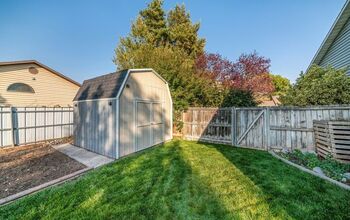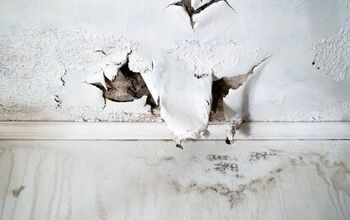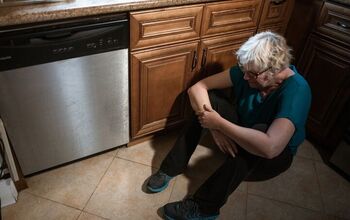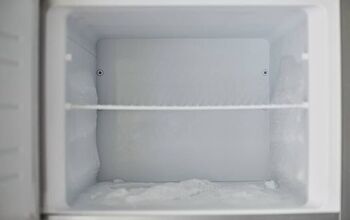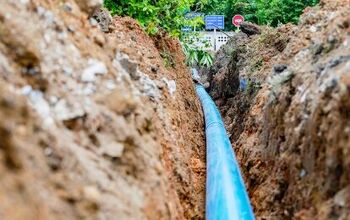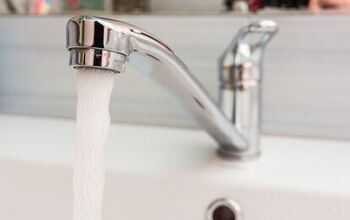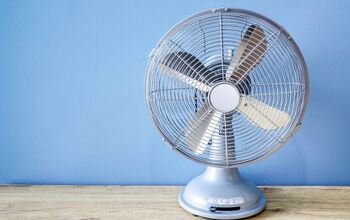Does Homeowners Insurance Cover Garage Doors?

If you’ve ever purchased a home, you probably think you know what to expect regarding homeowners insurance. However, it’s critical to understand the ins and outs of your policy as far as what it covers. Many people don’t think about the garage door when checking their coverage. This begs the question, does homeowners insurance cover your garage door?
Homeowner’s insurance covers garage doors that are destroyed in the event of vandalism, bad weather, and automobile accidents. However, you may need to purchase additional coverage if you want to protect a detached garage or protect your garage door from natural disasters. It’s best to check with your insurance and go over your policy to ensure your garage door is included.
This article will take you through the scenarios in which your insurance should cover your garage door; it’s a part of the home we don’t quite think about all the time! Let’s get to it.
How Do You Determine if Your Garage Door is Covered by Insurance?
Anything your homeowner’s policy covers will be within your policy or even in the fine print. Check the policy you purchased to see if your garage door is automatically covered or if you will need to buy extra insurance.
Typically, your insurance will cover any damage to the garage door caused by you or a family member. If a third party is at blame, such as when your neighbor hits your garage by accident, that person’s auto insurance policy will cover the cost of repair or replacement.
Does Homeowners Insurance Cover Doors on Attached Garages?
Since normal homeowners insurance covers the house and everything linked to it, an attached garage is also covered. It considers the section of your house that connects to the rest of your house, such as a chimney or a balcony off your bedroom.
Does Homeowners Cover Detached Garages?
Homeowners insurance covers detached garages under their “other structures” plan. This is because it’s not attached to the dwelling. You’re fortunate if your policy covers other constructions on your property.
Your fence, tool shed, and detached garage are all covered under other structures coverage. On the other hand, other structures are insured at 10% of your dwelling coverage limit, as opposed to an attached garage, which is covered up to the full amount of your dwelling coverage limit.
What Types of Garage Door Damages Are NOT Covered by Homeowners Insurance?
If an accident occurs, insurance can help you save a lot of money on repairs. Some damages, however, are not covered:
- Wear and tear: Garage doors of good quality can survive for many years; however, they ultimately wear out. Insurance does not cover normal wear and tear. You can extend the life of your garage door by providing regular maintenance. Allow the professionals to maintain your garage door to keep it operating as it did the day you got it.
- Minor damage: A deductible is usually included in most homeowners’ insurance contracts. A deductible is a pre-determined sum you must pay before your insurance coverage kicks in. For instance, if the garage damage costs $200 and your deductible is $500, you are responsible for the entire bill.
- Intentional damage: Your garage door will not be included under your insurance if you purposely damage it. Claims frequently necessitate the use of pictures or video evidence. If you are caught attempting to pass off intentional damage as accidental, you can be charged with insurance fraud, resulting in penalties and jail time.
Garage Door Damage Covered by Homeowners Insurance
Because your regular homeowner policy covers garage doors, damage claims are likely to be approved if the damage was caused by something that was out of your control.
This, too, may vary depending on the situation. You should always check your policy to figure out what is not covered, but here are some examples.
Vandalism
Your homeowner’s insurance is likely to cover malicious conduct, such as graffiti and other vandalism, as well as more frightening scenarios like break-ins.
If someone gains access to your home through your garage, your insurance will most likely cover the cost of repairs (though you should double-check). Homeowner’s insurance is designed to protect you and your belongings, including your garage.
Weather and Natural Disasters
When it comes to homeowner’s insurance coverage, severe weather can be problematic. If your garage door is damaged by hail or wind-blown debris, your insurance company will most likely cover some of the repair costs.
Studying your policy thoroughly is crucial because certain things you might assume are covered aren’t! If a natural disaster damages your garage door, such as an earthquake or flood, you may be responsible for the repairs. The best course of action is to review your insurance to determine what is covered.
When it comes to floods and earthquakes, though, there are additional policies that you can tack on to ensure that you are covered. Talk to your insurance agent to come up with a plan.
Damage From Vehicles
If your car collides with your garage door, both the door and your vehicle are likely damaged. The dent may have thrown the door off its tracks, rendering it unusable.
The good news is that your home’s insurance will likely cover the garage door’s damage from your car. The bad news is that it will not cover any vehicle damage. However, you should check your automobile insurance; your liability insurance may cover the damage to your vehicle.
Things get a little tricky if someone else drives into your garage instead. If the damage were caused by someone else’s vehicle, you’d need to file an auto claim with their insurance company to get reimbursed.
Fire Damage
House fires can be tragic, but having insurance can give you peace of mind knowing that the damages will be covered and most of your belongings will be replaced. The cost of a new garage door, as well as repairs to the rest of your house, is likely to be covered by insurance.
While wildfires are considered a natural disaster, normal insurance policies may not cover them. If you live in an area prone to wildfires, talk to your insurance agent about getting additional coverage.
Does Homeowners Insurance Cover Garage Door Replacements?
Whether your homeowner’s insurance covers a full garage door replacement depends highly on the agency you go through. Each policy has its own set of ground rules that help agencies determine whether the whole door needs to be replaced or repaired.
If it’s found that you need a garage door replacement and that it cannot be fixed, then yes, your policy will cover it. However, if it’s determined that your door needs a repair, you’ll most likely need to buy your door if you want a replacement.
Does Homeowners Insurance Cover Garage Door Repair?
Yes, homeowners insurance does cover garage door repair. However, again, this depends on your company. If your company believes that the damage requires a complete replacement, then the company installs a new door instead of covering the repair.
Should You Claim Garage Door Damage on Home Insurance?
Garage doors have a lot of wear and tear. After all, safeguarding your garage and residence necessitates a great deal of toughness and care! Accidents do happen, even if a high-quality garage door will last you 10-15 years.
Your kids may collide with the garage door while playing hockey, or your garage may be damaged by harsh weather—whatever the case may be, you’ll almost certainly need to have it repaired.
However, you will need to figure out whether the claim is even worth filing in the first place. For example, if you have a $500 deductible and $600 worth of damage, you may want to refrain from claiming your garage door damage.
Because, after all, is said and done, you’ll be out of $500. Now if the damage is $2,000, it’s worth claiming since insurance will cover the majority of it.
What About Renter’s Insurance? Does Renter’s Insurance Cover Garage Doors?
Renters insurance does not cover garage doors or any other physical portion of the building or dwelling. Renters insurance only protects your personal property and provides personal liability coverage.
If you hit the garage door with your car, then you’ll need to file a claim through your car insurance company instead. This accident should be covered until your automobile’s liability portion of the insurance.
How Much Does It Cost to Replace a Garage Door?
It typically costs $1,120 to replace a garage door; however, the cost can range between $590 and $1,650. But remember that insurance may not cover the full price if you have a deductible that you first need to meet.
Plus, this is just a cost range. It can cost more than $1,650 depending on how difficult the garage door is to install, whether it’s automatic or manual, and the type of door also dictates the price.
Coverage Questions by Provider
Now while homeowner’s insurance in general covers garage doors, what if you already have a policy through USAA or State Farm?
Does USAA Homeowners Insurance Cover Garage Doors?
USAA provides homeowners with coverage for any structures on their property, even if they’re not attached to the house. This includes detached garages, fences, driveways, and storage sheds. This is automatically covered under their basic policy since the garage door is part of the garage.
To ensure your garage is covered, you do not need to purchase additional insurance as their basic insurance will cover you in the event of an accident. However, whether they cover you or not will depend on how the door got damaged.
For instance, if your garage door is damaged from an earthquake, your insurance policy most likely won’t cover it. You may also need to purchase earthquake insurance.
Does State Farm Cover Garage Doors?
State farm covers your garage door if the garage is attached to your house. But what if you have a detached garage? This most likely means that you will need to purchase other structure insurance to ensure that your garage door is then covered.
Sometimes, they will make an exception if your garage is connected to the dwelling by a fence or awning. It’s best to allow an insurance adjustor onto your property so they can see what you’re working with to ensure you have the proper policy.

Heather is a passionate writer who loves anything DIY. Growing up, she learned everything from home repairs to design, and wants to share her tips with you. When she's not writing, she's usually hiking or searching for her next DIY project.
More by Heather Robbins







